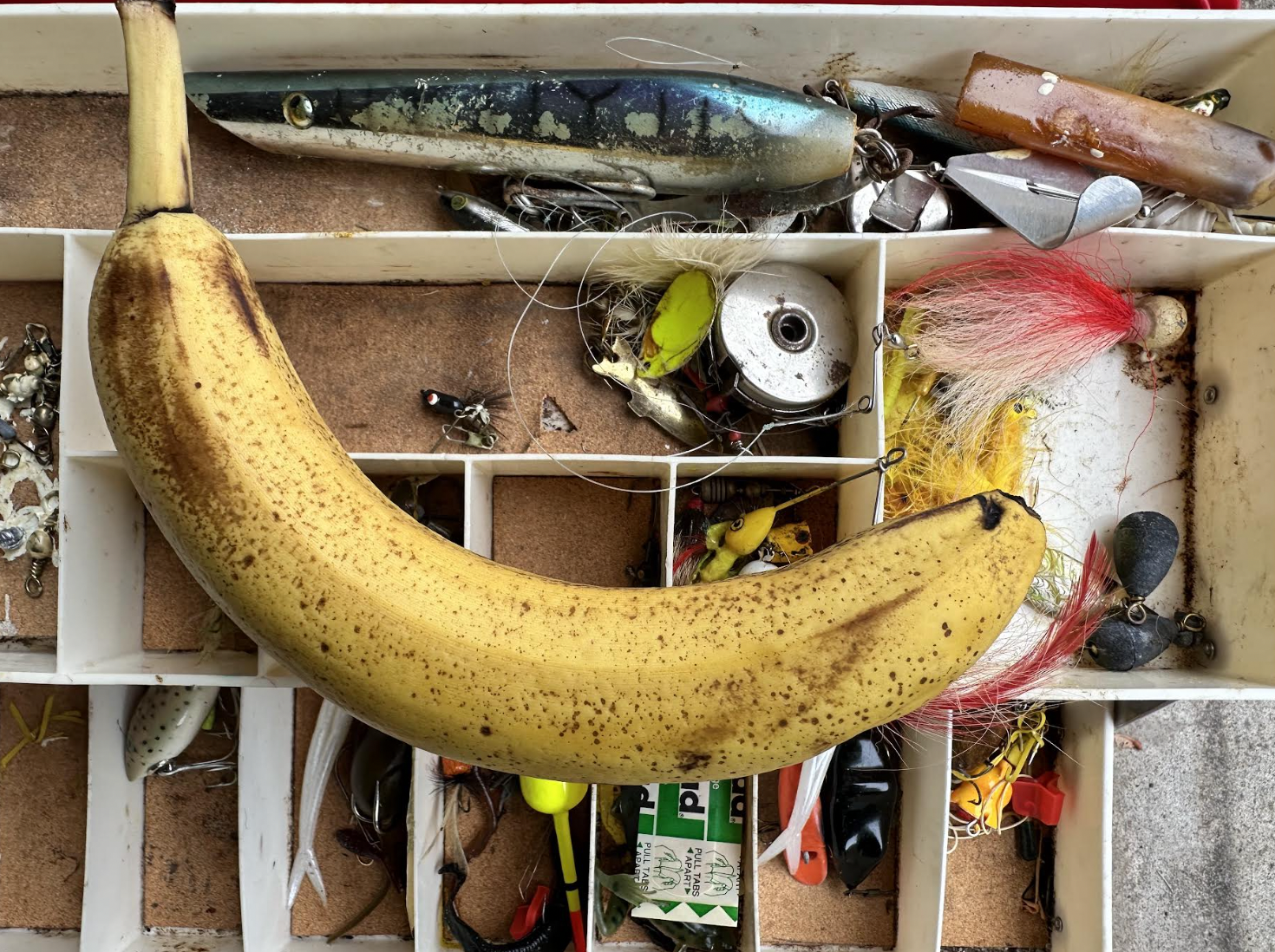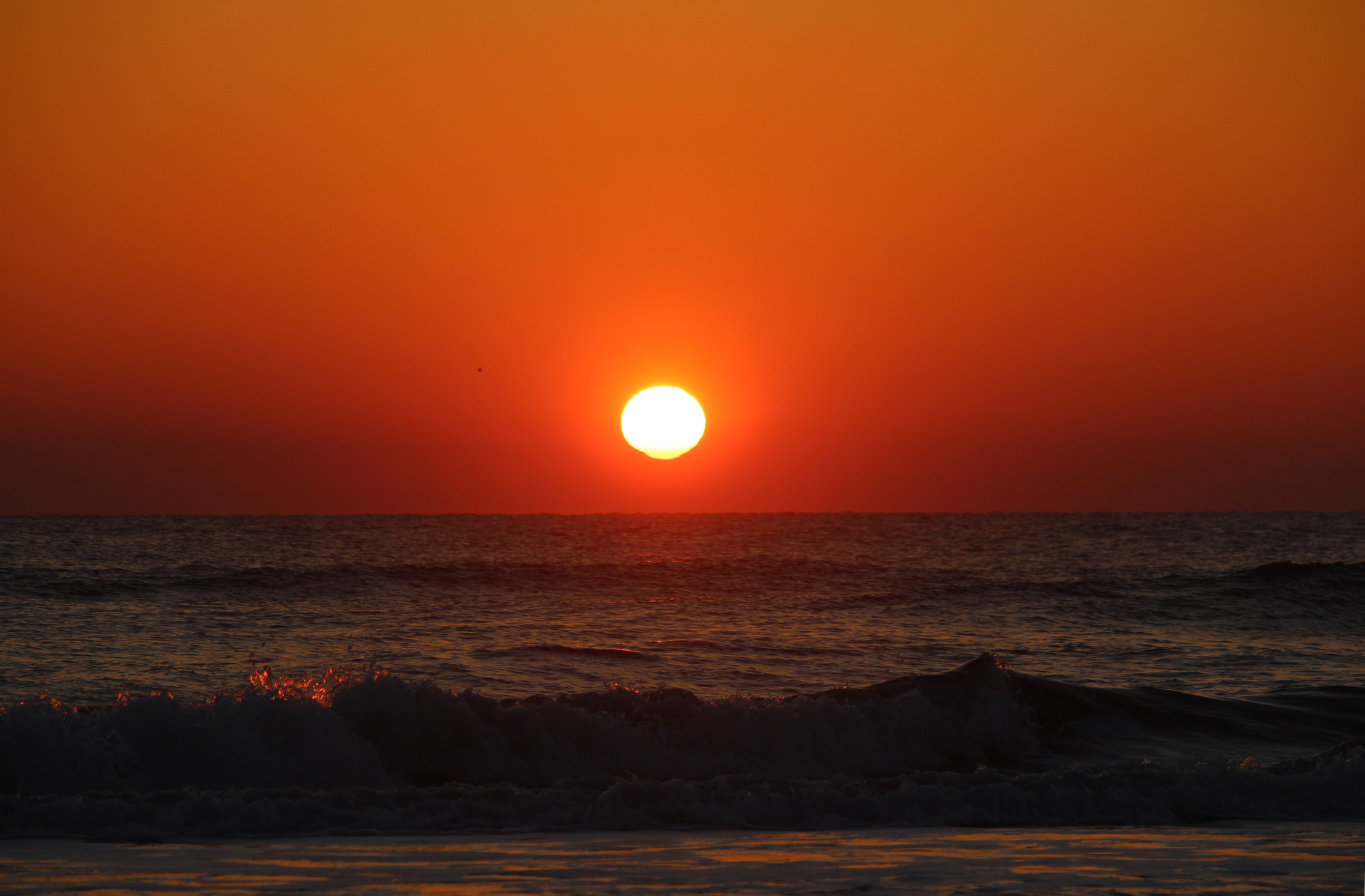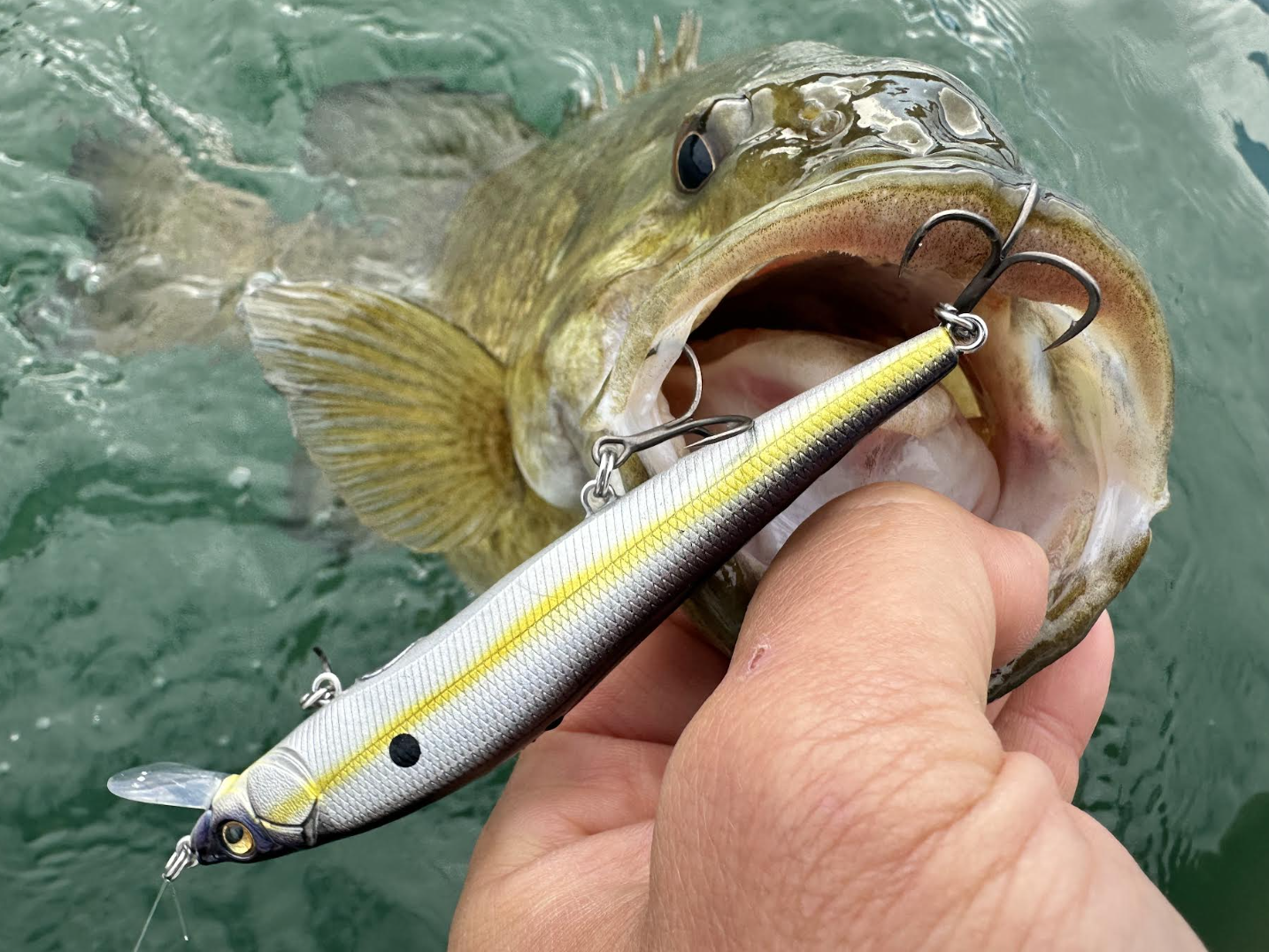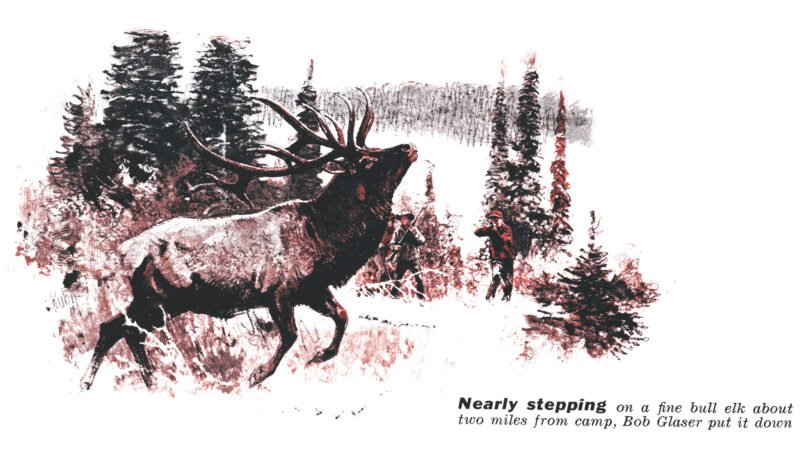The 6 Biggest Fishing Superstitions That Could Ruin Your Day on the Water
Anglers have always been a superstitious bunch. We have lucky hats, lucky rods, and lucky shirts. We have certain rituals to ensure good fortune, such as insisting a certain food is onboard or tossing a penny in the lake before departure.
Even anglers who claim they aren’t superstitious usually have some little ritual. For example, a friend of mine insists all the retractable cleats on his boat are pushed in before he backs out of the slip. In most cases, these lucky charms and practices are personal, but there are also superstitions and folklores that are believed by anglers across the country — and even globally.
What’s surprising is that some are rooted in some fact, while others were conjured from some unknowable history, but are believed and heeded all the same. Here are some of the most widely held superstitions in fishing. Whether you choose to believe them is up to you, but you have been warned.
No Bananas on the Boat

Of all the superstitions in fishing, none is more widely held than the belief that bananas are bad luck on a boat. This is a general boating superstition not just limited to fishing, but anglers hold it so dear that I once witnessed a captain chuck a spray can of Banana Boat sunscreen over the rail on the way out of the inlet. It was funny until he realized there was no more sunblock on the vessel so the poor girl who brought the tainted serum burned redder than a Maine Lobster.
I bet that if I had asked that captain why bananas—or in this case just the word “banana” on a can—were so unlucky, he wouldn’t have had an answer. Many people just accept the bad juju, but very few know the backstory, and that’s probably because it’s not exactly cut and dry.
Some folks believe the legend of the bad luck fruit dates back as far as the 1700s. During this time, it was apparently frequent for trading ships carrying loads of bananas to have misfortune at sea or simply vanish. It’s also been rumored that highly venomous spiders and snakes would wind up hiding in banana shipments and kill mariners on board. Another theory is that as they ripen, bananas produce significant ethylene gas, which can cause other fruits in the cargo hold to ripen too fast, thereby spoiling entire shipments before delivery.
If you want something more slapstick, I’ve also read that the superstition stems from the simple fact that banana peels are slippery, and mariners would bust their butts on deck thanks to carelessly discarded peels.
I’m sure the true origin of this superstition is out there somewhere, though the misfortune of banana boats going down frequently was never enough for me — ships carrying a wide range of goods ran into trouble all the time back then.
The funny thing is, though, despite my skepticism I abide by this one, because … why not? I can think of 400 other snacks I’d rather have on board anyway. Until they decide beef jerky and Italian hoagies are unlucky, too, I’ll be fine.
And for the record, I know captains who don’t even want a banana from breakfast in your stomach when you climb aboard. I know others who eat them all day, slice up the peels, rig them as trolling skirts, and catch fish on the forbidden fruit. So, you make your own call on this one.
Red Sky in the Morning

Have you ever heard the saying, “Red sky at night, sailor’s delight; Red sky in the morning, sailors take warning?” According to my internet sleuthing, the catchy phrase—or at least a similar version—first appeared in the Bible. Regardless of where it started, however, it was coined long before any type of serious or accurate weather forecasting was available. But the saying isn’t totally wrong.
A red sky at night is often the product of the low setting sun in the west reflecting off thick clouds in the east. Because weather moves west to east in many parts of the world, a red sky at night indicates that inclement weather has already passed through and there are clear skies behind it. But a red sky in the morning tells you the reverse—the rising sun is reflecting off thick clouds in the west that are headed your way.
I’ve personally witnessed the “red sky” deal several times. I wasn’t planning on being on a boat during any of those days, but sure enough, the beautiful red sky I enjoyed over coffee turned into a wet and sloppy afternoon. Luckily, we have radar, wind apps, barometers, and weather apps in our pockets at all times these days. So, if I was headed offshore and woke to a red sky, I’d double check the forecast before heading out.
The First Cast Curse

The whole point of going fishing is to catch fish, right? Of course, it is, just try not to do it on the very first cast. You might think hooking up immediately is a sign of a great day to come, but most anglers agree it’s a bad omen. I wish I could report that my personal experience has debunked this long-held superstition, but the truth is, it hasn’t.
This one is backed by zero science. It also has no known history. There wasn’t an ancient scroll or fairytale that kicked it off, at least that I could find. It’s just been adopted and spread by anglers who couldn’t help but notice that a fish on the first cast often leads to no more bites or at least a long period of inactivity before the next one.
The whole thing makes very little sense because the odds are crazy. What are the chances your first cast coincided with the last fraction of a bite window that is now closed? Is it really possible the first stump you fired at is the only one on the lake holding a bass? Unfortunately, though, I’ve seen anglers who hook up right away struggle even if everyone else is getting tight all day. I’m so confident in this superstition that I take measures (as do many other fishermen) to counteract it right away.
All you have to do is throw away cast number one. Send that lure short of the target zone or in the opposite direction. Get a little backlash that needs fixing. “Accidentally” fling your bait off so you’re forced to put on a new piece. It really doesn’t matter, just make sure you don’t connect on the first cast. After that, you’re free and clear. However, on the off chance your “throw-away” cast gets smashed, you’re doomed for the day.
Don’t Step Over a Rod
You know “step on a crack, break your mother’s back?” Well, there’s an angling version. Many fishermen believe it’s bad luck to step over a fishing rod whether it be on a boat deck, the dock, or the bank. As for the origins of this bit of folklore, there’s not a lot in the history books, though it’s been surmised that it stems from ancient cultures viewing their fishing tools as sacred and powerful.
I mean, heck, I think all my rods are light sabers infused with Bill Dance energy, which is why I’m such an amazing angler, but I also don’t have to worry about you stepping over them. Know why? Because they’re never laying on the deck of a boat.
Read Next: The Best Bass Fishing Rods, Tested and Reviewed
If this superstition were true, pro bass anglers would be the unluckiest bunch of fish heads on the planet because they’ve got 10 rods strapped to the front deck and are constantly dropping the one in their hands right in the middle. They are stepping over them all day. As for me, I try to not lay my rods in bank dirt or sand unless I have no other choice, and that has nothing to do with luck. They’re expensive and I want them to last, man. A rod lying flat on the deck is just begging to be broken (which would be unlucky), so most boats, even little ones, have rod holders. Use them.
Bizarre Rituals for Changing Boat Names
Here’s the scenario. You buy a used boat. You love everything about it. It’s almost perfect save for that it’s already named Strawberry Princess Cupcake — and that’s just not going to work for you. No big deal, though, right? Scrape off those pink bubble letters and slap on that new vinyl “Striper Sniper” lettering you ordered. But not so fast. There are rules, here, and if you break them, you could be in trouble. The proper methodology for renaming a boat ranges from simple to just plain weird, but what’s widely believed is that you can’t simply rename a boat without some process or you’ll be doomed with bad luck.
The easiest fix I’ve ever heard of was writing the old name somewhere inside the boat, then you’re free and clear to rename it. But, that almost feels too easy. You didn’t put in enough effort to appease Poseidon. As a matter of fact, it’s more common to hear the opposite of this ritual.
First, remove the old name. Then, make sure there is nothing whatsoever—from a life jacket to an old insurance card to a floor mat—containing the original name. All these things must be purged. Next, you can add your new name to the boat, and then you have a party. You must invite a few people over to witness the christening during which you smash a bottle of champagne on the gunwale—or just pour some on if you’re worried about the gel coat, I suppose—and everyone gets tipsy.
Now, on the weirder side, the strangest re-naming ritual I ever heard was that to wipe the slate clean for a new name, a woman had to pee in the lowest part of the boat. I believe this practice is tied to the Vikings, as it apparently also brings good luck to the vessel.
When I bought my first boat, three different people suggested this method. The sled came with the name Tunacious and even though it wasn’t my favorite, I knew my wife (girlfriend at the time) wasn’t going to squat in the bilge for me. And as a 24-year-old I would rather spend money on more lures than new vinyl lettering and champagne, so I just lived with it.
Do Not Mention the “W”
What’s the “W?” It stands for “wind,” though “weather” is also acceptable. And why don’t we talk about the “W?” Because we don’t need it to hear us. We don’t need it to remember that now would be a really good time to hurl something our way that can screw up what is otherwise a perfectly good fishing day. You might think it’s not listening, but it is, and though you can call me a nutcase, I’ve witnessed a mentioning of the “W” turn a calm, blue-bird day into a struggle. Also, I’ve noticed it’s usually certain types of people that mention the “W.”
I was flounder fishing a few miles off New Jersey a couple years ago with two hardcore angler buddies and one of their non-fishy brothers-in-law. We were banging fish left and right. We had a light breeze which provided a perfect drift speed over the structure. And then it happened.
Brother-in-law says, “Man, it’s like the perfect wind out here. It was so hot on shore, but this little breeze is really nice.”
Twenty minutes later, the little breeze turned into a stronger breeze and suddenly we couldn’t hold bottom with 8 ounces of lead. Could a tide change have contributed to the uptick in drift speed? Yup. But as far as we were concerned it was because broski mentioned the “W.”
So, if you’re not super fishy and you’re out there, remember: Shut up about the wind.
The post The 6 Biggest Fishing Superstitions That Could Ruin Your Day on the Water appeared first on Outdoor Life.
Source: https://www.outdoorlife.com/fishing/fishing-superstitions/





